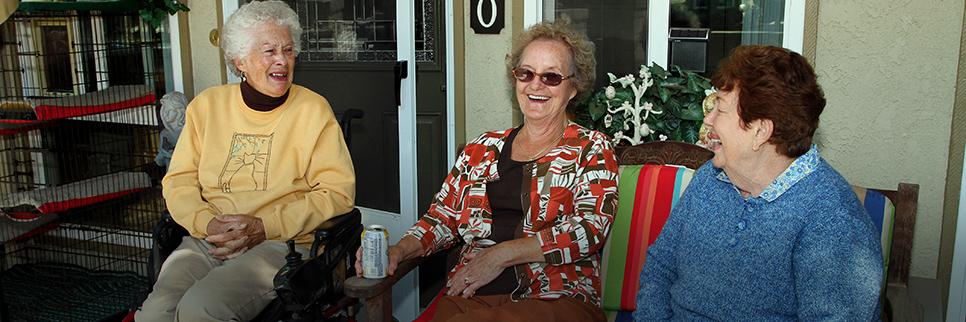
Jamboree offers seniors aging in place with custom supportive services for residents, as a growing need is ever more urgent. There are now more Americans age 65+ than at any other time in U.S. history. In fact, all baby boomers will be older than age 65 by 2030. The U.S. Census Bureau predicts the expansion of this segment of the population will equate to one in every five residents to be retirement age. The majority of these seniors are active and interested in living in strong communities that provide opportunities for a healthy, social lifestyle.
But a golden retirement is not guaranteed for all older adults. More than 23 million Americans aged 60+ are economically insecure, living at or below 25% of the federal poverty level (FPL). That equates to $29,425 per year for a single person, and the average household income for Jamboree residents is $26,579. These seniors struggle with rising housing and health care costs, inadequate nutrition, lack of access to transportation, diminished savings, and job loss.
That’s why Jamboree provides unique resident service programs that offer seniors a sense of security, as well as community, healthy living, and active lifestyles. These customized programs serve the needs of seniors through our resident services approach called REACH. As an acrostic, see our REACH Seniors brochure for how we use five simple values to help our senior residents successfully age in place, with a meaningful quality of life.
Jamboree’s supportive services follow a best-practice model that links social interaction with long-term health, providing activities and options for an active, social lifestyle. Fitness and nutritional resources, medical support, education such as computer training, and other community amenities all allow seniors to remain in a stable, supportive environment they can afford. In fact, many of our senior residents qualify for a skilled nursing facility but live independently with our wrap-around support and services.
Our onsite resident services staff and property management partners undergo sensitivity training related to seniors so that they are equipped to recognize bias and better understand and support aging issues. This includes the loss of loved ones, pain management, or loss of hearing or eyesight. Staff also receive trauma-informed training to provide a safe place of trust for seniors who have experienced trauma such as war, hunger, or elder abuse.
In collaboration with a growing base of community partners in the senior community and beyond, we are eager to see our seniors thrive with support that reduces depression and increases access to local healthcare and municipal senior centers. Since the development of our award-winning multigenerational Courier Place – where the average age of our senior residents is 75 – we've added Wesley Village, with expanded services that include adult day care, along with concepts for other new multigenerational communities in our pipeline. Plus, we continue to work with partners to develop senior-focused campus developments such as Metro East.
We build in quality housing and build up good in senior residents – as well as families and special needs – to bring out the best in them and in our neighborhoods and communities. For partners:


